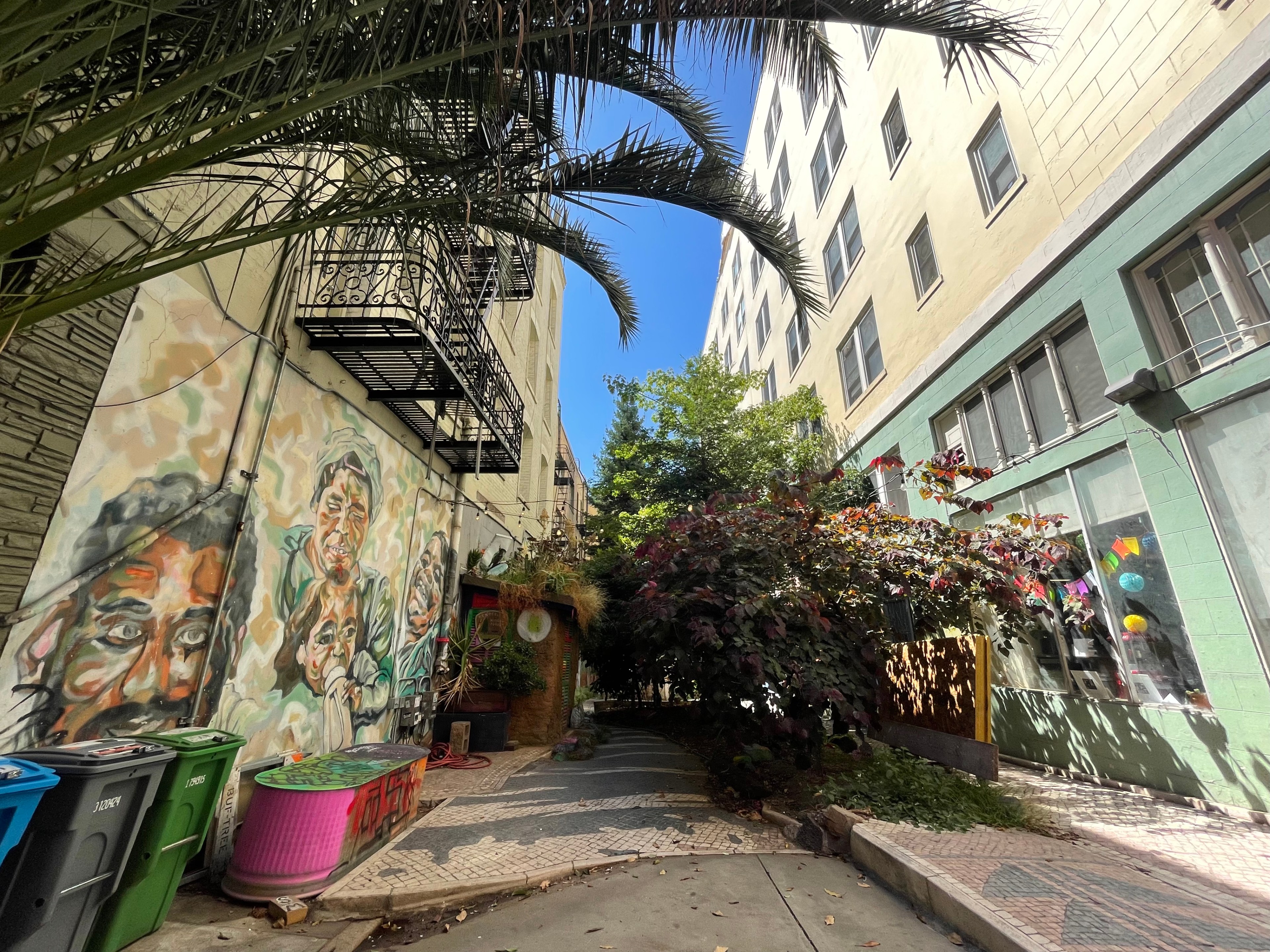San Francisco has pledged funding to reopen a narrow alleyway with trees known as the Tenderloin National Forest in the troubled Tenderloin neighborhood.
The alleyway—which isn’t really a national forest but does have a four-story redwood tree—is located in an area that struggles with open-air drug-dealing and drug use on Ellis Street, snug between the Senator Hotel and an art gallery called the Luggage Store Gallery.
The small strip of land, called Cohen Alley, was once a dumping ground for hypodermic needles and trash before it was transformed in 1989 into an enclave for artists, guerrilla gardeners and neighbors. The space closed during the pandemic, and it has only opened sporadically since.
Now, with $80,000 for staffing, the city’s Planning Department said it hopes to reopen the space to the public by the end of the year. Dan Sider, a spokesperson for the department, said that the forest will be open during “conventional park-like” hours.
Silas Patino, who lives next door in the Senator Hotel, said he used to frequent the hangout and he hopes to help the city revitalize the space. Patino recalled artists and musicians mingling at the Forest as he and his friends cooked pizza out of an oven in the far corner.
“It’s peace and quiet back there. There are hummingbirds and squirrels,” Silas said. “I haven’t seen those squirrels lately, but I imagine they’re back there.”
The Luggage Store Gallery next door rents the space from the city for $1 per year as part of an agreement to maintain the space.
The Forest’s reopening is one of several efforts the city is making to bring life to parts of the Tenderloin neighborhood that often attract drug activity and crime.
In February, St. Anthony’s Foundation announced that in collaboration with the city, it was planning to spend $200,000 to turn Golden Gate Avenue a few blocks away into an event space called the “Golden Gate Greenway.”
More recently, the city released plans to turn U.N. Plaza, the site of the most reported overdoses over the past five years, into an outdoor activity hub for skateboarding, pingpong and chess tables. In August, the city will also host a four-day carnival along Fulton Street next to U.N. Plaza with a Ferris wheel, a spinning teacup ride and a 100-foot super slide.
